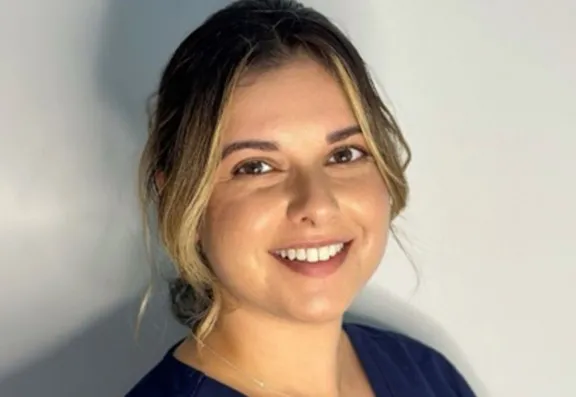
09
Oct
2024
For many, the NHS is the backbone of the UK and a long-serving institution which sets the country apart in its mission to provide a free-of-charge universal health system. However, the struggles in maintaining the NHS have been well-publicised and in recent years, record numbers of practitioners have been leaving due to a multitude of factors. According to the King’s Fund, the top two reasons for practitioners leaving the NHS are to improve work–life balance or because of health issues. The number of staff leaving for these reasons has more than tripled since 2013/14.[i]
A growing number of practitioners have made the switch from the NHS into the world of medical aesthetics recently – either expanding their career to make a part-time foray into the world of aesthetics or going for a complete career shift with a full-time focus on aesthetics. Aesthetics offers a unique combination of creativity, flexibility, and financial rewards, which is becoming increasingly appealing to those seeking to move away from the more traditional, and often restrictive, medical career routes.
Harley Academy – the UK’s leading provider of postgraduate higher education in aesthetic medicine – has been at the coalface of this change, and is campaigning for quality training (and ultimately, patient safety) to be the first consideration for those wanting to leave the NHS to pursue a career in aesthetics.
“The combination of strained NHS working conditions and the booming demand for aesthetic treatments has sparked a surge in healthcare professionals moving into this field. With consumer interest continuing to rise and the industry becoming more regulated, it's very likely that this trend will not only continue but also solidify aesthetic medicine as a highly desirable specialty in the future of healthcare,”
says co-founder Dr Tristan Mehta.
“However, it’s important to highlight that aesthetics is a separate specialism and as such, requires a considered approach to training and development and we are passionate about offering practitioners the opportunity to expand and take control of their career, flex their creativity and enhance their job satisfaction.”
Harley Academy has seen a consistent increase within the last year of medical practitioners enquiring about aesthetics training, with hundreds of active enquiries per month and packed-out information evenings. This trend may be underpinned by the new government regulations and guidelines formalising aesthetic medicine as a legitimate speciality, encouraging more healthcare professionals to consider this pathway as a long-term career option. Here, we share some case studies of healthcare practitioners who have successfully transitioned from the NHS into fulfilling aesthetics careers, beginning with their Level 7 qualification training at the Harley Academy.

Harpreet Heer
What was your career/training prior to aesthetics?
I completed my medical degree in 2016 and went straight into Foundation Training, rotating through various specialities including Emergency Medicine, General Practice and General Surgery. I then took some time out of training by taking up a Clinical Fellow post in Emergency Medicine, and also spent some time travelling in the US. Following this, I started Internal Medicine Training in 2019 which set me on the pathway to becoming a medical registrar which is where I am currently as I come to the end of my IM training. I have now completed my postgraduate medical exams, otherwise known as the MRCP, which is another essential step in becoming a medical consultant.
What motivated you to make the move away from this role into aesthetics?
As much I enjoyed medicine as a discipline, I was feeling really dissatisfied with my working life. Training to become a consultant takes a minimum of 7 years after Foundation Training, which includes regular antisocial shifts and rotating through various hospitals around the region. With the pressures the NHS is under, it isn't uncommon to have to deal with patients who are already unhappy with long waiting times and difficulty accessing care, as well as colleagues who are stressed and unhappy at work. All of these things made me want more autonomy over my working life, and to work in an environment that isn't subject to these same stressors. However, I still wanted to use my skills as a doctor and to feel like I was achieving something for my patients.
What were you worried about?
The main thing I was worried about was judgement from my family, my peers and my senior colleagues in the NHS. I thought everyone would think I was crazy for walking away from this career I'd worked so hard to achieve, or that they'd think I was superficial and money-driven to go and work in the aesthetic industry. I also didn't know how I could really turn this into a career; I'd never run a business before and leaving the safety blanket of the NHS felt really daunting.
What were you excited about?
Once I started learning more about the treatments, I was really excited by what could be achieved with injectables and seeing the impact it made on patients. I was also excited to be a part of this community of like-minded healthcare professionals who had similar experiences to mine. I felt so ready to gain some control back over my work life, which would also help to improve my personal life and give me the time and frame of mind to enjoy quality time with my loved ones.
What drew you to training with Harley Academy?
HA was recommended to me by a colleague due to their reputation of training only healthcare professionals, and their high success rate with their graduates going straight into jobs in the industry. Their Level 7 course was a huge draw for me, as I wanted to get as much knowledge and training as possible before I started injecting patients. The thought of only doing a Foundation course and then injecting patients was terrifying to me, and I knew I needed to do a detailed course where I could have the support of mentors while I learned how to inject as this is similar to the standard of training I was used to from my medical background.
How was your experience with the Harley training programme?
From the very first discovery call, I could see that everyone who works at HA shares a passion for aesthetics and they all believe in the same ethos; that injectable treatments should be delivered to the highest standard by qualified healthcare professionals. This was so important to me and reassured me that I was training with the best people. All the mentors were so knowledgeable and really supportive, they all gave such helpful feedback that boosted my confidence and encouraged me to stay in touch in case I needed to discuss any challenging cases with someone. This is so valuable as I was so used to working as part of a team in my NHS role, so it was really nice to feel like I still had support available. Furthermore, the support team at HA were always so helpful and really helped me to organise all of my sessions and assessments.
What is your current role and how does it differ to what you did before?
I have recently started working at Story Southwell, and I do this part-time alongside my NHS role however I will imminently be switching to a full-time role at the clinic now that I'm finishing my IM training. Previously I rented a room where I would perform my aesthetic treatments, and at one point I was working for a large chain of clinics providing aesthetic treatments. Working at Story feels a bit more intimate but I've also got the reassurance of having a team for support.
What do you love most about your current job?
I absolutely love meeting new patients every day and getting to know them as they become regular patients. As aesthetic practitioners we get to support patients as they go through major milestones like getting married, starting new jobs, etc. and it's a privilege to help them prepare for these events. It's a real joy to see the look on a patient's face after their treatment and to watch their confidence grow. I also love working with the team at Story clinics, it's an honour to be able to work around such experts in the field and I feel like I'm constantly learning new things that will enable me to achieve even better outcomes for my patients.
What would be your advice to someone considering leaving the NHS to join aesthetics?
My advice would be to first of all do your research about the different qualifications and be ready to invest in the Level 7, as I believe it's the best preparation you can have to become a truly safe injector. I would also advise people that it is possible to work in aesthetics without compromising your morals, you just need to find a circle of like-minded professionals which is exactly what I found with HA. I would also warn them that it takes a lot of hard work, building a successful aesthetics career takes years and a lot of the time you'll still be working in the NHS at the same time. Starting a new career can feel overwhelming and lonely, so it's really important to make connections with other professionals in the industry so you have someone to turn to if you find yourself dealing with a challenging case. Most of all, enjoy the journey and grab any opportunities that come up with both hands!
References
[i] King’s Fund. NHS workforce in a nutshell. Published May 2024. https://www.kingsfund.org.uk/insight-and-analysis/data-and-charts/nhs-workforce-nutshell

About Harley Academy
A doctor-led academy with accredited courses providing expert higher education in aesthetic medicine.
As providers of exceptional medical aesthetics training courses, our main goal is to improve patient safety. Beyond teaching theoretical concepts, our evidence-based aesthetics courses emphasise practical application through real-world situations. We instil each of our trainees with confidence. You gain confidence in your skills and the mindset needed for a successful aesthetic medicine career
Our cosmetic courses span online eLearning as well as in-person, hands-on sessions. Our practical, in-person and one-to-one mentored aesthetics training takes place at our City of London locations